-

How to Create a Great Social Media Strategy in 2025 [+ New Data]
Learn how to develop a social media strategy that drives traffic and delivers real ROI to ...
Allie Decker
3/25/25
-

15 Best Social Media Organization Tips and Tricks for Managers
Learn the best social media organization tips from industry experts to help you organize s...
Ramona Sukhraj
3/25/25
-
The Best Times to Post on Social Media in 2025 [New Data]
Wondering the best time to post on Instagram, TikTok & other social platforms in 2025? Fin...
Flori Needle
3/25/25
-

Morning Brew's Co-Founder on The Three Channels That Will Win 2025 (Plus, How to...
Discover lessons from Morning Brew's success, including the hub-and-spoke model, crafting ...
Caroline Forsey
3/25/25
From HubSpot's video library
-
.jpg?height=240&name=YT-237_A%20(1).jpg)
How to Start Affiliate Marketing With No Experience or Money (4 Free Tools!)
-

How Airlines Really Make Money | Hustlenomics | The Hustle
-
.jpg?height=240&name=IMG_0735%20(1).jpg)
What Entrepreneurs Can Learn From Native Deodorant
-

Meet the Designer Behind the Iconic Nudie Suit | Unknown Empires
-

Tips For Elevating Your Next Go-To-Market Strategy (+ Free Templates)
-

Why T-Mobile Trademarked This Color | The Hustle
-
.jpg?height=240&name=YT-237_A%20(1).jpg)
How to Start Affiliate Marketing With No Experience or Money (4 Free Tools!)
-

How Airlines Really Make Money | Hustlenomics | The Hustle
-
.jpg?height=240&name=IMG_0735%20(1).jpg)
What Entrepreneurs Can Learn From Native Deodorant
-

Meet the Designer Behind the Iconic Nudie Suit | Unknown Empires
-

Tips For Elevating Your Next Go-To-Market Strategy (+ Free Templates)
-

Why T-Mobile Trademarked This Color | The Hustle
-
.jpg?height=240&name=YT-237_A%20(1).jpg)
How to Start Affiliate Marketing With No Experience or Money (4 Free Tools!)
-

How Airlines Really Make Money | Hustlenomics | The Hustle
-
.jpg?height=240&name=IMG_0735%20(1).jpg)
What Entrepreneurs Can Learn From Native Deodorant
-

Meet the Designer Behind the Iconic Nudie Suit | Unknown Empires
-

Tips For Elevating Your Next Go-To-Market Strategy (+ Free Templates)
-

Why T-Mobile Trademarked This Color | The Hustle
-

I Took a Deep Dive Into Market Segmentation — Here's Everything I Learned
I took a deep dive into market segmentation. Here’s everything I learned.
Diego Alamir
3/18/25
-

Testimonial Questions Reps Need to Ask Their Customers
Not all testimonials are created equal — use these 25 smart questions to capture customer ...
Ashley Valadez
3/17/25
-

How the Customer Journey Funnel Revamps Traditional Methods and Drives Business
See how the customer journey funnel helps businesses nurture leads, boost retention, and t...
Ashley Valadez
3/14/25
-

AI Intent — Figuring Out the Purpose that Drives Service Tech
AI intent is an AI system’s ability to understand the meaning behind a user’s input. Disco...
Kolawole Samuel Adebayo
2/21/25
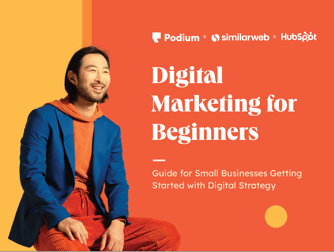
An Introduction to Digital Marketing
Learn the basics of digital marketing and explore different ways to reach your ideal customer.
-

Want to Create a Sales Plan? Let Me Show You How [+ 10 Sales Plan Examples]
Sales planning is an essential component of strong selling. This guide to the sales planni...
Jay Fuchs
3/25/25
-

Using AI Agents to Increase Your Productivity and Drive Sales [All the Pros and ...
Curious about AI agents? Explore what an AI agent is, how it works, the benefits, cons, an...
Zoe Ashbridge
3/25/25
-
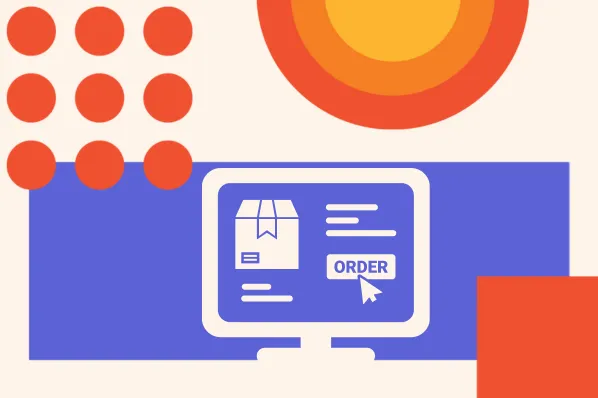
Purchase Order: What It Is & How to Create One [+ Template]
Obtain services from trusted vendors efficiently with a purchase order. Learn how to creat...
Lestraundra Alfred
3/25/25
-

6 Reasons Prospects Ghost You (& What to Do When It Happens), According to Exper...
Getting ghosted in any facet of life is pretty brutal, and sales is no exception. See six ...
Jay Fuchs
3/24/25
From the HubSpot Podcast Network
-
Business Made Simple

Your Website Probably Stinks—Here’s How to Fix It!
-
The Science of Scaling

How to Scale a Billion Dollar Sales Team w/ John McMahon (Board Member, Snowflake)
-
Truth, Lies and Workplace Culture
-2.png?height=240&name=PodcastCovers23%20(1)-2.png)
From Bystander to Ally: How to Avoid DEIB Washing
-
Imperfect Action
-2.png?height=240&name=PodcastCovers23%20(4)-2.png)
The art of the post-launch review: 5 questions to make your next launch a success
-
Latinx In Power
.png?height=240&name=PodcastCovers23%20(6).png)
Harnessing the Power of Silence in Negotiation with Diana Kleps
-
The Sales Evangelist

5 Ways To Do Daily Outbound With LinkedIn
-
Business Made Simple

Your Website Probably Stinks—Here’s How to Fix It!
-
The Science of Scaling

How to Scale a Billion Dollar Sales Team w/ John McMahon (Board Member, Snowflake)
-
Truth, Lies and Workplace Culture
-2.png?height=240&name=PodcastCovers23%20(1)-2.png)
From Bystander to Ally: How to Avoid DEIB Washing
-
Imperfect Action
-2.png?height=240&name=PodcastCovers23%20(4)-2.png)
The art of the post-launch review: 5 questions to make your next launch a success
-
Latinx In Power
.png?height=240&name=PodcastCovers23%20(6).png)
Harnessing the Power of Silence in Negotiation with Diana Kleps
-
The Sales Evangelist

5 Ways To Do Daily Outbound With LinkedIn
-
Business Made Simple

Your Website Probably Stinks—Here’s How to Fix It!
-
The Science of Scaling

How to Scale a Billion Dollar Sales Team w/ John McMahon (Board Member, Snowflake)
-
Truth, Lies and Workplace Culture
-2.png?height=240&name=PodcastCovers23%20(1)-2.png)
From Bystander to Ally: How to Avoid DEIB Washing
-
Imperfect Action
-2.png?height=240&name=PodcastCovers23%20(4)-2.png)
The art of the post-launch review: 5 questions to make your next launch a success
-
Latinx In Power
.png?height=240&name=PodcastCovers23%20(6).png)
Harnessing the Power of Silence in Negotiation with Diana Kleps
-
The Sales Evangelist

5 Ways To Do Daily Outbound With LinkedIn
-

Yes, You Need a UX Persona. Here's Why & How to Create One
Learn how to create UX personas for your design projects. Understand the importance of use...
Althea Storm
3/25/25
-

25+ Web3 Website Examples to Inspire Yours
Discover the best Web3 websites that combine decentralization with stunning user experienc...
Nathan Ojaokomo
3/24/25
-
Gradient Website Design Examples That Prove This Trend Is Far From Over [+Tutori...
Discover the power of gradient website design. Learn how to use gradients effectively, and...
Althea Storm
3/24/25
-

Website Navigation: How to Design Menus Visitors Love [Examples]
Learn how to design your website navigation according to best practices and examples from ...
Anna Fitzgerald
3/24/25
-

15 Brochure Website Examples to Inspire You [+ How to Make One]
Check out some of the coolest brochure website examples and how you can create your own br...
Anna Fitzgerald
3/20/25
-

Understanding the Dreaded Deceptive Website Warning — Here's Everything You Need...
Learn how to identify, remove, and prevent deceptive website warnings to protect your site...
Clinton Joy
3/18/25
Explore more topics
Ready to brush up on something new? We've got more to read right this way.

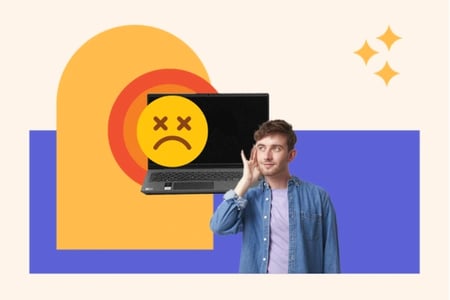
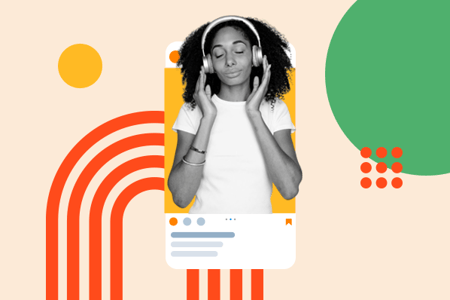
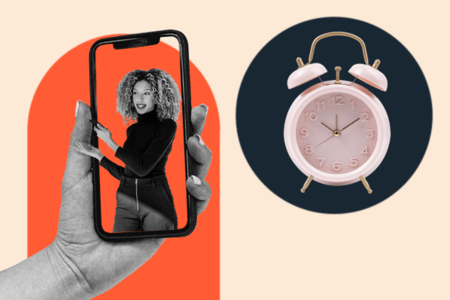
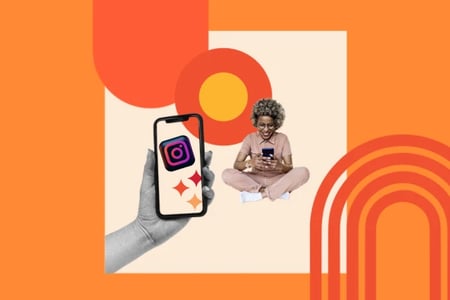

.png)
